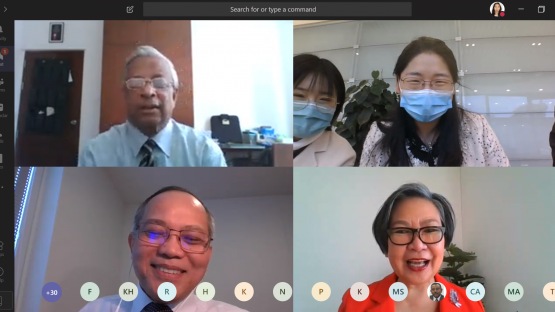Connecting from home offices and conference rooms across half the planet—spanning 10 time zones, from Vienna to New Zealand—49 participants from nuclear institutes across Asia and the IAEA joined a video conference call to conduct the 42nd meeting of national representatives of the Regional Co-operative Agreement for Research, Development and Training Related to Nuclear Science and Technology for Asia and the Pacific (RCA). The meeting has been held annually since 1973 to coordinate IAEA technical cooperation (TC) efforts in the region. Originally planned to be held in Kuala Lumpur, Malaysia, the meeting was instead held online, for the first time in the Agreement’s history, due to the COVID-19 pandemic.
The RCA is the longest standing of the IAEA’s regional cooperation agreements and was formally established in 1972 to facilitate efforts made throughout Asia and the Pacific to intensify and broaden engagement with nuclear science and technology, particularly in the areas of research, development, and training. In the last 48 years, the RCA has contributed to the development of technical and human resource capacities in the region through more than 150 TC projects.
Abdul Muin Bin Abdul Rahman, Chairperson of the RCA and Deputy Director General of the Malaysian Nuclear Agency, said: “Despite the current global situation, the RCA programme should not lose sight of its important goal of promoting the application of nuclear science and technology in support of sustainable socio-economic development.”
Mohd Abd. Wahab Bin Yusof, Director General for the Malaysian Nuclear Agency, in his welcome remarks, emphasized Malaysia’s continued dedication to the RCA programme and thanked all of the participants for their availability in the unprecedented online meeting, pointing out “the unprecedented global crisis, COVID-19, has forced many countries to impose restricted movement orders to control the virus, which has, in turn, restricted our abilities to conduct socioeconomic activities, including implementing the RCA programme. To avoid losing sight of the goals of the RCA programme, we have to find innovative ways of conducting our work, including this online meeting today.”








